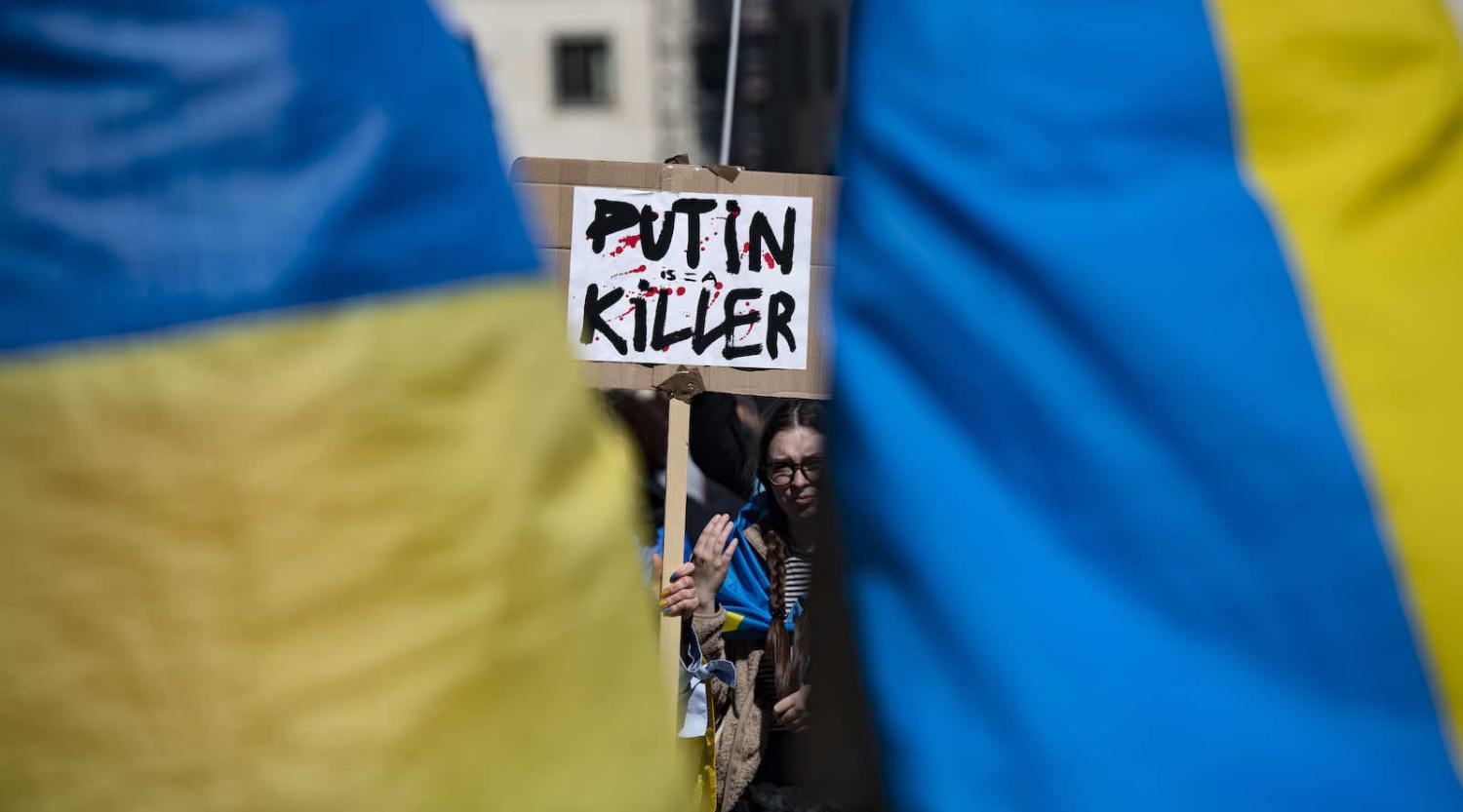As the Russian invasion of Ukraine has laid bare the brutality of the campaign, there have been increasing debates over whether it constitutes genocide. On 12 April, US President Joe Biden accused Russia of committing genocide, later clarifying that he “called it genocide because it has become clearer and clearer that Putin is just trying to wipe out the idea of being able to be Ukrainian”.
Biden’s declaration has come after prolific public debate by experts, who largely agree that it is too early to determine whether there exists an intention to destroy, in whole or in part, the Ukrainian people. Intention to commit genocide is exceptionally hard to prove. Indications of such intent are rarely overt, and while it can be established indirectly by inference, it must be the only inference available.
So, does it matter whether Russia is committing genocide, war crimes, or crimes against humanity, collectively referred to as atrocity crimes?
While atrocity crimes are ongoing, the distinction should determine policy makers’ response. As Russia’s war aims and strategy have changed and Russian propaganda has increasingly turned genocidal, regardless of whether Russia is in fact already committing genocide, it matters that there is a serious risk of it occurring.
The treaty that legally defines genocide, the Genocide Convention, imposes on the 152 State parties an obligation “to prevent and to punish” the crime. In 2007, the International Court of Justice (ICJ) clarified that “this obviously does not mean that the obligation to prevent genocide only comes into being when perpetration of genocide commences”. Rather, the ICJ emphasised that “a State’s obligation to prevent, and the corresponding duty to act, arise at the instant that the State learns of, or should normally have learned of, the existence of a serious risk that genocide will be committed”.
While it is difficult to predetermine whether acts will constitute genocide, some specific warning signs for genocide that are present in Ukraine include denying the existence of the group, genocidal propaganda, dehumanising violence, and the removal of Ukrainian children.
There is a false belief that the Genocide Convention “requires countries to intervene once genocide is formally identified”. Such a narrative might raise false hopes with the people of Ukraine should a genocide be declared but no military intervention is forthcoming.
The Convention is silent on what states should do to prevent genocide. The ICJ has stated that the obligation “is one of conduct and not of result”, insofar as states must “employ all means reasonably available to them” to prevent genocide “as far as possible”. A state can be held responsible where it manifestly fails to take measures within its power that might contribute to preventing genocide. It is, in effect, a due diligence standard. States must do what they can.
India and China both have close diplomatic and economic links to Russia, giving them greater capacity to influence Putin and his allies.
While the United States and Europe, as well as Australia and a handful of other countries in Asia, have reacted quickly and strongly to Russia’s act of aggression, there is more that could be done to avert the serious risk of genocide. This includes a full European energy embargo and the delivery of all weapons necessary to expel Russia from Ukraine. Declarations of the existence of genocide, such as that from Biden, may also contribute to the public shaming of Russia, further isolating it from the world.
Other state parties to the Convention across Latin America, Asia, and Africa have an obligation to consider what means they possess to deter Russia from committing genocide against Ukrainians.
This raises ethical and practical questions, as Ukraine is not the only place in the world where people face a serious risk or are already victims of genocide. Most of these situations do not receive the popular attention and practical support of Ukraine. Yet, that should not be an excuse not to act.
The ICJ acknowledged that a state’s “capacity to influence” depends on a country’s geographical proximity and the political and other links with genocidal actors. India and China both have close diplomatic and economic links to Russia, giving them greater capacity to influence Putin and his allies.
China, which itself stands accused of committing genocide against Uighurs and other minorities in Xinjiang, is unlikely to be influenced by its duties under the Convention.
India, an important partner of Australia and the United States, has already faced some pressure to take a stance against Russia. The duty to act under the Convention adds another argument in the toolbox in the ongoing conversations with India.
Having drawn attention to the serious risk of genocide occurring in Ukraine, we should now focus our attention on what more the world can and must do to prevent genocide. Governments across the world not only have a moral, but also a legal obligation.

